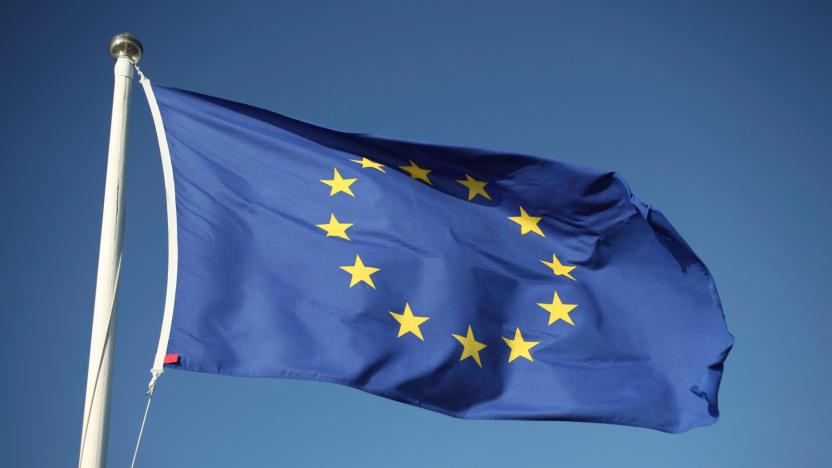europeancouncil
Latest

EU copyright laws face uncertain fate after 11 countries reject proposal
Internet giants like Google might breathe a little easier in Europe... at least, for now. The EU has called off January 21st negotiations for a final vote on the controversial Copyright Directive after 11 countries, including Germany, Italy and the Netherlands, said they wouldn't support the latest version of the proposal. European Parliament Member Julia Reda noted that most of these countries (Croatia and Portugal are exceptions) have previously argued that the disputed Articles 11 and 13 of the directive didn't do enough to protect users' rights, and this may have played at least some part in their opposition.

EU passes net neutrality laws that leave 'fast lane' loopholes
Legislation designed to protect net neutrality and abolish mobile phone roaming fees has been passed today by the European Parliament. These new rules -- hotly debated for two years by EU representatives -- are now finalised and will soon cover the entire region, including the UK. While the end of expensive holiday phone bills won't take place until 2017, the updated internet protections should come into effect fairly quickly. Such a moment ought to be cause for celebration, however many in the technology industry are now concerned about loopholes that could enable internet "fast lanes." Today's vote included amendments that would've sealed up those weaknesses -- but it seems the Parliament was happy enough with the wording and pushed ahead regardless.

Europe to scrap roaming charges, protect net neutrality
It's been a long time coming, but we finally know when roaming charges will be scrapped in Europe: June 15th, 2017. The European Commission had been pushing for an earlier implementation, but ultimately relented in order to win support from the European Parliament and Council. Under the new rules, Europeans will pay the same prices as they do at home, regardless of where they travel in the EU. However, such a move could be open to abuse -- after all, anyone could buy a cheaper SIM from a neighboring country and use it at home -- so there will be a fair use limit when roaming, after which networks can charge you a basic fee. While we wait for 2017 to roll around, Europe is prepping a stop-gap measure for next year. From April 2016, operators will be limited to the following maximum roaming charges: €0.20 per MB, €0.06 per SMS and €0.05 per minute -- the same rates that former EU Commission VP Neelie Kroes wanted to enforce last year.

European Parliament approves January 2013 deadline for 4G spectrum free up
Back in November, the European Commission, European Parliament and its member states agreed on plans to repurpose their 800MHz frequency bands for 4G mobile networks. Today, that decision has been officially approved. The Radio Spectrum Policy Programme (RSPP) has been set up to coordinate the use of this spectrum for fourth-generation services across the continent. Currently, 800MHz is used for analog television, but the new ruling gives member nations until the 1st of January 2013 to switch over to digital and authorize the band for its new role. Those nations dragging their heels can obtain an exemption, but mobile operators will be eager to see the spectrum freed up before then if possible. Swedish politician Gunnar Hökmark, who pushed for the legislation, hopes that it could lead to the EU having the fastest mobile broadband worldwide. Just don't tell AT&T.

EU wants member countries to free up spectrum for 4G rollout, eyes 2013 deadline
This one's been in the works for a little while now, but the EU has just taken another step toward making 4G coverage a continental reality. Last week, the European Commission, European Parliament and member states of the European Council reached what they're calling an "informal compromise" on a new radio spectrum policy. Under the proposed agreement, member countries would have to free up (read: "auction off") their 800MHz frequency bands for broadband service by January 1, 2013, as part of Parliament's plan to accelerate broadband rollout by using spectrum once devoted to analog TV frequencies. The idea is to allocate 1200MHz to mobile traffic sometime after the year 2013, but before the end of 2015. Government authorities would retain the right to allocate their country's radio frequencies as they see fit, though distribution across ISPs and users falls under the EU's aegis -- which is where the proposed Radio Spectrum Policy Programme comes in. A draft of the deal has already received approval, though a final version must still be ratified by the European Parliament's Industry, Research and Energy Committee on November 10th, before making its way to Parliament for a full vote.



